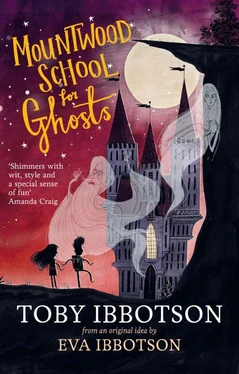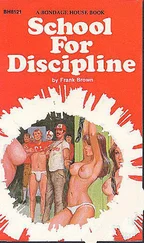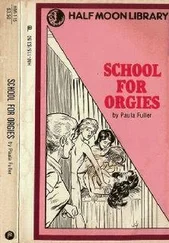‘Oh, do hurry up,’ said Fredegonda, who was already in her nightie. She swallowed the last of her drink and climbed into bed, followed by Drusilla. At last Goneril too was ready, and she joined them in the huge four-poster they shared. It had been there when they moved into Mountwood, but although built to take the weight of overfed clan chieftains and their companions, it had collapsed instantly when Goneril sat on it to try it out. However, a bit of work with some old oak beams had soon sorted that out. It wasn’t very comfortable, but Great Hagges snort at comfort. In a surprisingly short time the massive structure was trembling and shaking with the huge snores of its occupants.
Meanwhile, elsewhere in the castle, the Shortener was having trouble achieving the peaceful state of almost non-existence that is the spectral version of sleep.
As the daylight grew stronger and the sun threatened to appear over the horizon, he tossed and turned, now invisible, now vaguely discernible, and simply could not find peace. He was doing fairly well on the course, he thought, but he couldn’t shake off the horrible experience that had brought him there in the first place. It had shamed him; it was as simple as that.
His mind turned to the deserted chapel on its windswept promontory that was his home. Ghosts don’t usually haunt churches or chapels or other places of worship, because the clergymen who are in charge of them are very particular about which other-worldly beings they are prepared to associate with, and they have quite effective methods — bells, books and candles to name but a few — of dealing with the ones they don’t approve of. But no priest of any denomination had set foot in this chapel for years. In fact the place had been abandoned when the Shortener was still alive.
He remembered happy days working in his little funeral parlour among the coffins and corpses. He had always been a thrifty man, and had never understood why there was such a fuss about some simple adjustments that saved everybody time and expense. The removal of feet, or indeed sawing through shin bones in the case of particularly tall cadavers, meant much shorter coffins, and that was a saving of several pounds. The simple people of his village should have been grateful to him. But they weren’t. The Shortener sighed. Instead, when they found his little cupboard with the extra parts in it, they had simply thrown him over the cliff without a second thought.
But that wasn’t what caused him such pain; he had returned to haunt the chapel happily for many years. Then, only a month or two ago, a gang of teenagers had broken through one of the boarded-up windows and started malarkeying about among the pews. The girls had very short skirts and lots of make-up. The boys had baseball caps (although they never played baseball) and basketball shoes (although they never played basketball) and ripped jeans, although they weren’t very poor and had hard-working parents, as far as he knew. The Shortener had seen his chance to give them a real fright, and waited patiently for a moment of silence, so that he could eerily appear and smile the little smile he had been practising. At last the moment came. But just as he was materializing behind the dusty altar, one of the boys said, ‘Hey, check this out,’ and they all rushed round to peer at something that glowed faintly bluish in his hand.
‘Eeuu… that’s disgusting!’
‘Shift over and let me see…’
‘That is unreal …’
They used a lot of other words that the Shortener had never heard in chapel before, and he knew that his moment had passed. When the youths started climbing out of the window he tried a little cackle, just to send them on their way.
‘Oh, shut it,’ said one of the boys.
‘Shut it yourself,’ said the girl who was climbing out behind him. ‘It wasn’t me.’
‘Yeah, right,’ came the reply, and they chattered and tittered off into the night.
The Shortener had been badly shaken by his experience and immediately signed up for Mountwood, but he simply couldn’t rid himself of the feeling that he was useless, washed-up, and would never be a ghost for the modern age.
At that moment there was a quiet tapping on the wall of his little room, and one of the sprites floated through. It was almost light and she was barely visible, but sprites are not really ghosts, and dawn and dusk present no serious problems for them.
‘Hello there. Are you still up?’
‘Er, yes, I am. Do come in’
‘I was just wondering if you would do me a favour and partner me tomorrow in Miss Goneril’s class. I want to do my best, you know, after what happened.’ She shuddered slightly as she recalled her interview with Fredegonda.
‘And you are such a fantastic materializer,’ she added. ‘So solid, I mean; you’re almost real sometimes.’
‘Oh well, thank you. But it’s a gift, you know. No credit to me, I’m afraid.’
‘That’s silly; of course it’s a credit to you. Will you help me?’
‘What about the Phantom Welder? You seem to be great pals. Wouldn’t he be a better choice?’
‘I knew you would say that. But it’s not like you think. He feels that he doesn’t fit in, and tries to cover it up with his silly jokes. But I must do some serious work tomorrow; I’m not just an empty-headed blonde, even though I am empty.’
She was a forest spirit of Scandinavian descent, and when she turned her back you could see that she was completely hollow.
The Shortener regretted his snide remark about the Welder at once. ‘I’ll be happy to help, if you think I can be of use.’
‘Oh yes, of course you can. You are so… steady. Thank you. Until tomorrow night, then. We can meet up a bit earlier and rehearse.’ And the sprite vanished.
The Shortener felt much better. By the time the first rays of the sun escaped the fir-clad ridge and leaped into the valley, he was at peace.
Twelve
Saving Markham Street
Charlotte and Daniel walked up through the iron posts to the park and sat down under General Markham. Every house on Markham Street had received the same official letter. As usual there was a bit of a wind blowing, not your typical cold dry easterly that keeps the beautiful beaches of the north-east swept clean of people even at the height of summer, but a mild gusty breeze from the south-west.
‘Guess what,’ said Charlotte, looking out over the city to the river in the distance. ‘I’ve just realized for the first time why cranes are called cranes.’
‘Oh?’
‘Because they look like cranes.’
And Daniel saw that of course she was right. The huge skeletal cranes lining the river on the other side of town looked like great wading birds with big beaks about to pounce on some unsuspecting frog or minnow.
They were quiet for a long time. Then Charlotte said, ‘We can stop this, Daniel. You can appeal to an independent inspector — I looked it up last night. If we oppose it, then they have to have an inquiry. We must protest, start a campaign. Save Markham Street.’
‘It won’t work,’ said Daniel. ‘My dad says that there is going to be a shopping centre as well, and that means not only the council against us but also all the big businesses who want to sell stuff. They have billions of pounds, and hundreds of clever lawyers.’
‘But you always read in the papers about the little people fighting Big Business.’
‘Yes, but not about them winning.’
Charlotte got horribly angry, suddenly, and to her annoyance even started to cry. ‘So we just give up and go away, do we? You don’t care enough, do you? Being sorry for yourself isn’t the same thing as caring, you know. Caring is putting up a fight. Or maybe you don’t have to bother, maybe you’ve got it all planned already, a nice place to move to, some new friends. And Mrs Wilder and Mr Jaros and Mrs Hughes’s peonies can just lump it. Have you ever heard of Rosa Parks?’
Читать дальше












